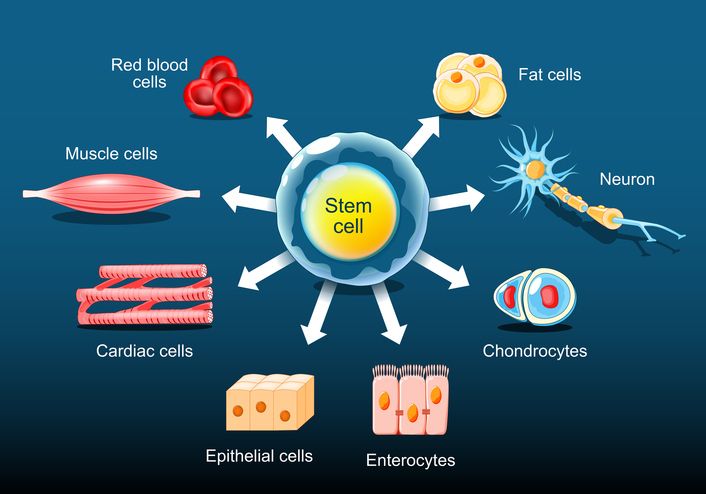
Book Now to Experience
Acne Treatment
1 Minute Self-Registration
Date should not be before minimal date
Author: Leila Tan|Updated: 23 July 2024
Acne or also known as acne vulgaris is a common skin condition that affects people of all ages. It occurs when hair follicles become clogged with oil and dead skin cells, leading to the formation of pimples, blackheads, and whiteheads. The causes of acne itself are multifactorial, including genetics, hormonal changes, and environmental factors such as diet and stress. To effectively kill acne, it is important to understand its causes and implement prevention methods.

1
How can you prevent acne?
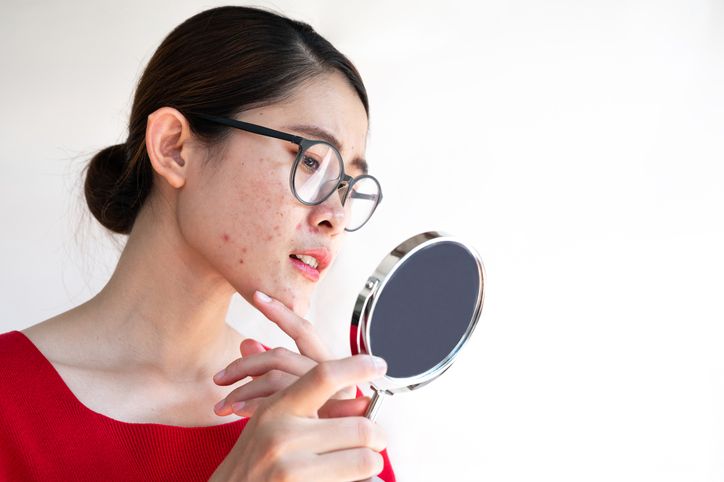
Prevention methods for acne include establishing a consistent skincare routine and avoiding known triggers. Washing your face twice a day with a gentle cleanser can help remove excess oil and dirt from the skin, preventing the buildup of bacteria that can cause acne . It is also important to avoid over-scrubbing the skin, which can irritate and worsen acne. Additionally, incorporating acne-fighting ingredients such as salicylic acid or benzoyl peroxide into your skincare routine can help prevent breakouts . Maintaining a healthy diet and managing stress levels can also contribute to preventing acne.
A consistent skincare routine is essential in preventing and treating acne. This includes cleansing, toning, and moisturizing the skin, as well as applying acne medication as needed. It is important to choose products that are suitable for your skin type and to avoid harsh ingredients that can cause irritation or dryness. Additionally, incorporating natural remedies such as tea tree oil or green tea extract can help kill acne-causing bacteria. By understanding the causes of acne and implementing effective prevention methods and skincare routines, individuals can effectively kill acne and achieve clear, healthy skin.

2
Topical treatments for fast acne relief
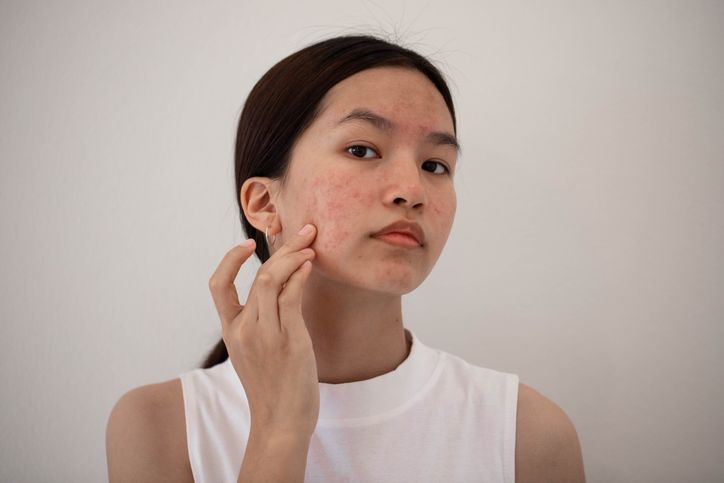
When it comes to fast acne relief, topical treatments are often the go-to solution.
Salicylic acid
Salicylic acid is a popular ingredient in many acne-fighting products due to its ability to dissolve dead skin cells and unclog pores, making it an effective treatment for whiteheads and blackheads . In addition, salicylic acid may also help prevent new breakouts from forming by unclogging pores and removing excess oil.
Benzoyl peroxide
Benzoyl peroxide is another effective topical treatment for acne, as it helps to kill the bacteria that cause pimples. Furthermore, benzoyl peroxide can remove excess oil and dead skin cells, which can contribute to the development of acne.
Tea tree oil
Tea tree oil is a natural solution that can also be effective in treating acne. It has natural antibacterial properties that can help kill the bacteria responsible for acne breakouts. Applying a drop of tea tree oil to a cotton ball and gently blotting the affected area can help reduce inflammation and prevent new pimples from forming.
Adapalene
This component, a retinoid, aids in clearing clog pores and preventing fresh breakouts. Adapalene gel (Differin) is offered over-the-counter at a 0.1% concentration. Applying this product to skin with a cut, sunburn, or eczema outbreak is not advised. When the gel is applied, you can experience a minor stinging, but it soon goes away. Dry skin, scaling, and irritated skin are further potential adverse effects. To alleviate these symptoms, use a moisturizer that is non comedogenic.
Azelaic acid
This moderately antimicrobial component aids in the acne formation preventing clogged pores. 10% strength azelaic acid products are over-the-counter. Additionally, postinflammatory hyperpigmentation, which can persist after acne has cleared up, can be treated with azelaic acid.
Alpha hydroxy acids
The acids found in milk, sugar cane, and fruits that contain sugar are called alpha hydroxy acids. Glycolic acid and lactic acid are two forms of alpha hydroxy acids that are utilized in over-the-counter acne treatments. By eliminating dead skin cells and relaxing irritated skin, they treat acne. A new layer of smoother skin might grow as a result of alpha hydroxy acids. This enhances the appearance of pores and acne scars.
When using topical treatments for acne, it is important to use them correctly to avoid overdrying the skin or causing irritation. It is recommended to start with a low concentration of the active ingredient and gradually increase as needed. Additionally, it is important to avoid picking at pimples, as this can worsen acne and lead to scarring. Using a gentle cleanser and spot treatment can also help to effectively manage acne.
In conclusion, salicylic acid, benzoyl peroxide, and tea tree oil are effective topical treatments for fast acne relief. When using these products, it is important to use them correctly and consistently to avoid overdrying or irritation. Additionally, incorporating a gentle cleansing routine and avoiding picking at pimples can help to effectively manage and prevent acne breakouts.
Read More

3
Lifestyle changes to prevent acne
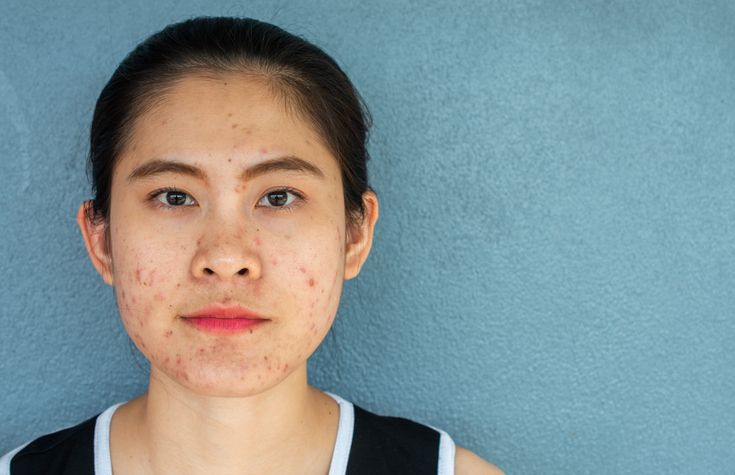
Acne can be prevented and managed through lifestyle changes, particularly in diet and exercise.
Balanced diet

Eating a balanced diet rich in fresh fruits and vegetables, healthy protein sources, and omega-3 fatty acids can help reduce or prevent acne breakouts. Cutting back on sugar, alcohol, and processed foods, as well as avoiding dairy products, can also be effective in managing acne. Additionally, consuming low-glycemic foods, such as most fresh vegetables, can reduce the amount of acne. Probiotic-rich foods like yogurt, kimchi, and sauerkraut can also help get rid of acne. Thus, making dietary changes can be an effective way to prevent and manage acne.
Regular exercise

Exercise can also have a positive impact on treating acne prone skin. Regular exercise can improve circulation, increase oxygen flow, and reduce stress levels, all of which can help prevent acne breakouts. However, it is important to wear clean workout clothes to prevent bacteria and oils from clogging pores. Using face and body cleansers that contain benzoyl peroxide can also effectively cleanse acne-prone skin. On the other hand, for some people, exercise can worsen acne due to increased sweat and oil on the skin that clogs pores. Thus, it is important to maintain good hygiene practices and use appropriate skincare products when engaging in physical activity.
Managing stress

Stress is a major contributor to acne breakouts, and managing stress levels can be an effective way to prevent and manage acne. Stress management techniques like practicing mindfulness, enjoying nature, doing light exercises, setting work-life boundaries, and cleaning one's space can help reduce stress levels and prevent acne breakouts. Additionally, using vitamin A cream and avoiding picking at pimples can help treat stress acne. Applying a warm or cold compress over the area can also reduce pain and redness associated with stress cysts . Tea tree oil, known for its ability to fight bacteria and reduce skin inflammation, can also be effective in treating acne . Thus, incorporating stress management techniques into one's daily routine can be an effective way to prevent and manage acne.

4
Acne treatment - New Beauty
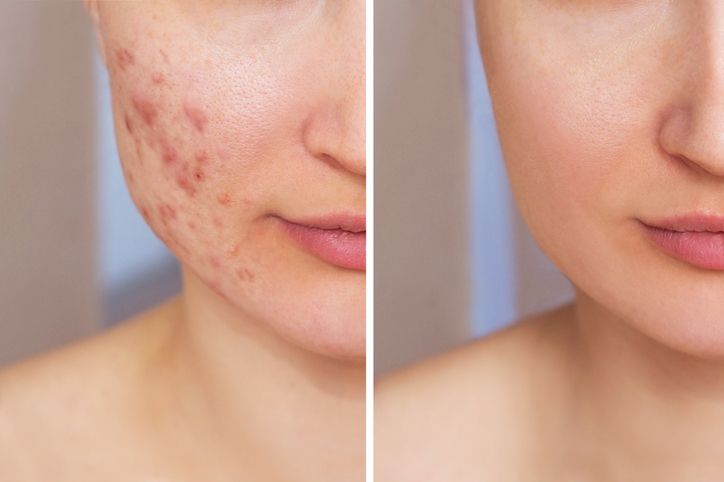
The Acne Treatment is a new treatment from New Beauty for skin that is prone to breakouts. First, the dual spiral suction plus drainage technology exfoliates dead skin cells and clears clogged pores at the same time, reducing acne infection and inflammation. The face is then treated with a moisturizing serum to control sebum output and encourage collagen synthesis. Future breakouts of acne are less likely if there is insufficient oil. Acne, blemishes, blackheads, whiteheads, pockmarks, enlarged pores, dry skin, acne scars, and dull skin tone are all goals of the acne treatment. Seize the opportunity to revive bright skin and increase your self-esteem!
How does this treatment work?
Step 1: The consultant will outline the procedure's steps and theoretical underpinnings. The beauty therapist then performs a patch test to make sure the probe hasn't caused any irritation.
Step 2: The hoover microdermabrasion and deep cleaning process is started by the twin spiral suction/drainage probe. Exfoliation is used to remove dead skin cells, oil, and grime that have been trapped in the pores and on the surface of the skin. The various acne symptoms, inflammation and infection should gradually subside if the pollutants are removed.
Step 3: To balance the water-to-oil ratio, calm the oil glands from future overproduction of oil, and promote collagen growth, the moisturizing serum is injected into the unclogged skin. This results in less subsequent breakouts, quieter acne, and skin with a finer tone.
What can you get out of this treatment
Removes Dead Skin Cells: Excess dead skin cells are removed using dual spiral suction and drainage technology to keep pores from becoming clogged in the future.
Hydrating Essence: A medical-grade moisturizing serum may penetrate the deepest layers of the skin to nourish and hydrate the skin tissues while also soothing acne-prone skin. Additionally, it soothes the sebaceous glands to stop overproduction of oil.
Visible Results: You will have less acne breakouts, acne scarring, and various types of acne as the treatment goes on. Watch as your skin becomes healthier, more moisturized, and lighter with less of an oily sheen!
Non-invasive Treatment: The acne treatment is non-invasive, so there is no need for oral antibiotics, surgery, incisions, injections, or acne medication. Most persons with moderate to severe acne, according to our in-house beauticians, are candidates for this treatment.

Book Now to Experience
Acne Treatment
1 Minute Self-Registration
Date should not be before minimal date

5
How to choose the right acne product?
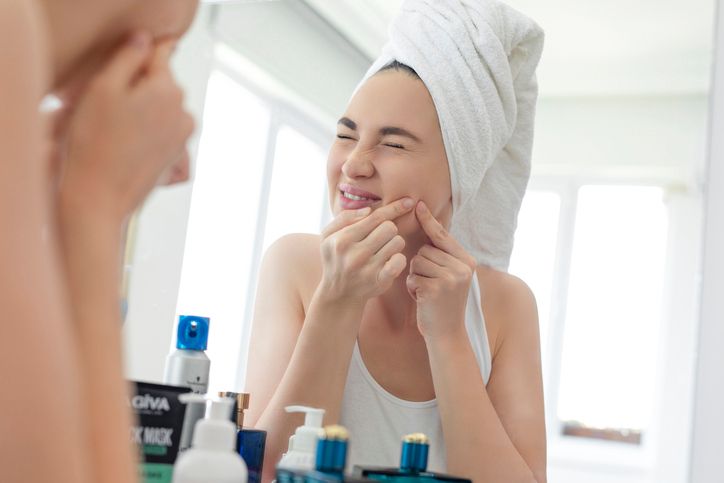
Adapalene and benzoyl peroxide should be used first. Start with an acne treatment that contains benzoyl peroxide, adapalene, or both if you're unsure which to purchase. Both are efficient and typically accepted. According to certain studies, they work best when together. Before expecting to see effects, give it a few days.
Start with acne medications of lower strength. This can lessen other issues, such as dry, itchy skin, and inflammation. If necessary, gradually increase the product's potency and frequency of usage. Spread out this across a few weeks. This aids in your skin's treatment acclimation.
Use a variety of products. Use multiple products, each containing a different active ingredient or combination of active ingredients or substances, to treat obstinate acne. To help prevent skin irritation, you can use one product in the morning and a different one at night.
Select the form that is most useful to you. There may be different formulations of the substance you need, such as a soap, lotion, gel, or ointment. Creams typically cause less irritability than gels or ointments. However, ointments and gels better penetrate the skin. Gels may make your oily skin feel dry and stinging. You could find ointments to be overly oily. Before you find a product that works for you, you might need to test a few others.

6
Conclusion
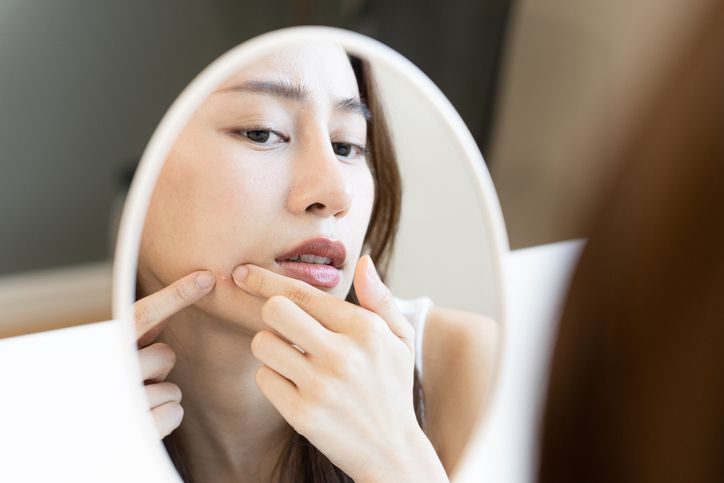
Try taking in the outdoors, exercising lightly, establishing boundaries between work and personal time, and organizing your environment. It's also important to try not to worry about your stress acne any more. It might take some time, but it will pass. Consider visiting your doctor or a dermatologist for a prescription lotion or medication if your acne doesn't clear up after following a skin care routine with your preferred acne products for two to three months.
FAQ
How long does it take for acne to get healed?
The typical duration of a pimple is three to seven days. The majority of zits disappear on their own, but it could take some time. Deep pimples, which are no-head pimples beneath the skin that may feel hard to the touch, could take several weeks, if not longer, to disappear.
Does acne pose a health risk?
Even though acne rarely poses a serious health risk, it can nevertheless be distressing, and severe cases can leave behind scarring that lasts a lifetime. Fortunately, by the time they reach their 30s, acne usually stops bothering most people. Skin oil glands are where acne first appears. A channel called a follicle, which also houses a hair, is where the oils ascend.
What are acne's long-term effects?
A higher level of despair, anxiety, negative self-esteem, and severe acne are all linked. Psychiatric problems are more prevalent in late puberty and in cases of more severe acne.
What would happen if acne persisted?
It might be a good idea to visit a dermatologist if your pimples are deep and persistent. Antibiotics may be prescribed by the dermatologist to lessen inflammation and eradicate any potential acne-causing bacteria. To balance hormone levels, they may occasionally prescribe birth control medications.

Book Now to Experience
Acne Treatment
1 Minute Self-Registration
Date should not be before minimal date
Recommended Articles
COPYRIGHT© NEW BEAUTY MANAGEMENT LIMITED 2026. ALL RIGHT RESERVED.


